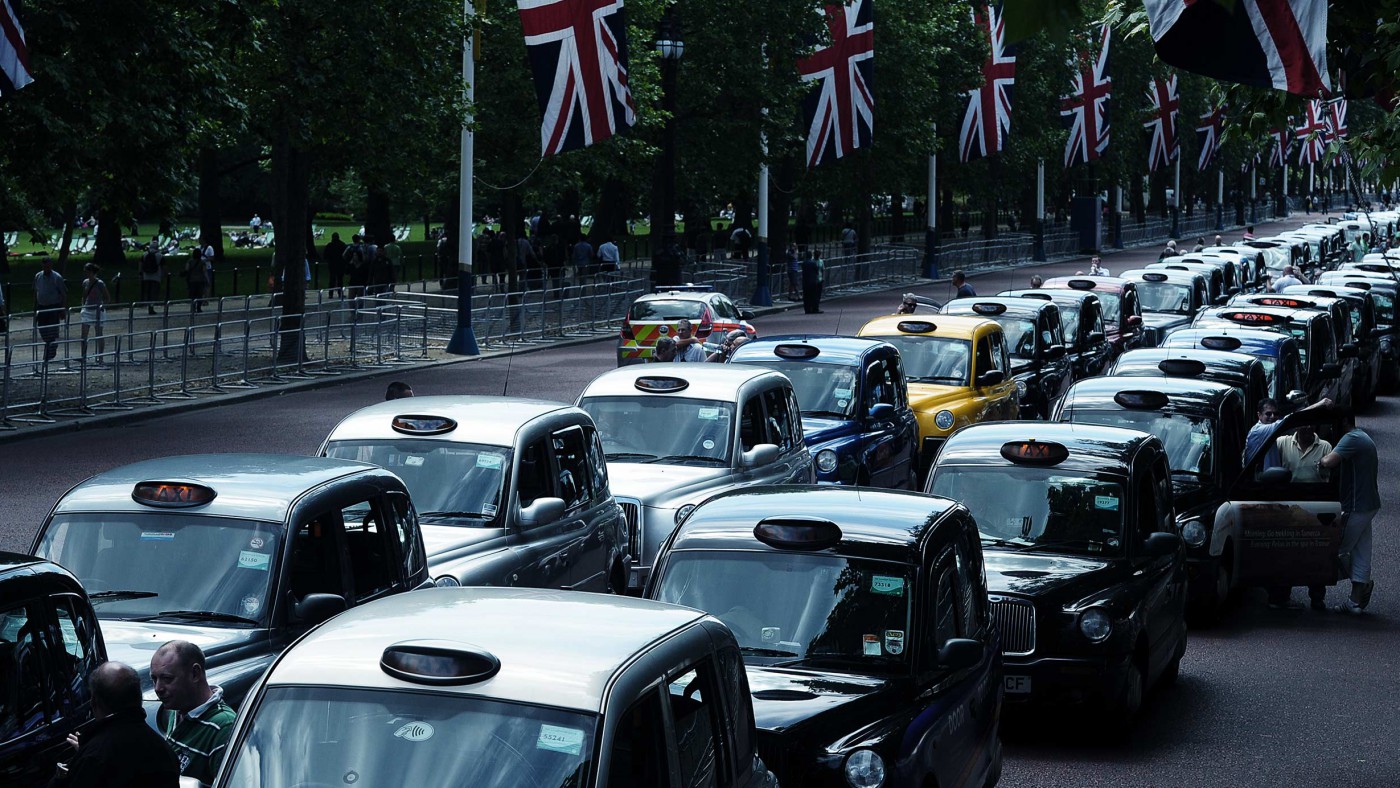I’m not an Uber user. Do they even do an app for Blackberry dinosaurs like me? Anyway, I quite like stepping out on the edge of the pavement, seeing a little yellow light on top of a black cab and hailing it. Failing that, I get a bus or walk.
Perhaps, deep down, I’m not a user of the on-demand minicab service sweeping the capital because the black cab is part of London history, and in a city centre at risk of losing entirely its connection with its working class heritage, as it becomes ever more globalised and bland with people forced further out by the year, there is something reassuring about encountering the London cabbie who had that Sherlock Holmes in the back of his cab.
Yes, I should be gung-ho for Uber – as a pro-market person who can’t stand restrictive practices – but my enthusiasm is tempered. There is something slightly unnerving about the Uber campaign and the panglossian propaganda of the company’s most strident advocates. It’s the taxi trade, which involves low wages and a lot of aggro and unhappiness, yet Uber is talked about as though it offers a bright, shiny future straight out of silicon valley. The whole thing is a bit too neat, and great for middle class people in the media dashing about town between parties.
Does the old-fashioned, registered and regulated black cab actually have a future though? This week cabbies are demonstrating again against the rise of Uber and Transport for London, the body that runs the city’s public transport and reports to Tory mayor Boris Johnson, has come up with a ludicrous set of restrictions enshrining the privileges of the black cab owners. It won’t be enough to save them, I suspect. Despite my reservations about the Uber campaign, here’s why I think London’s cabbies are destined to lose.
1) This week black cab drivers blocked Fleet Street at rush hour. This created considerable chaos for commuters, especially those leaving the City of London and trying to head south west. That’s a lot of annoyed people. Ruining people’s evening is not a good way to persuade them of your case. Every demo boosts Uber.
2) A kinder, calmer social media campaign defending London black cabs might have worked, if it could have been presented in terms of protecting London’s heritage and reliability. It is too late now.
3) Londoners have had too many bad black cab experiences to be sceptical about competition. Yes, we have all had tremendous, polite service from some drivers and helpful if unsolicited advice (on Boris Johnson, the English football team, the ethics of MPs and the wisdom of Nigel Farage) from others. But we have also experienced dire service at other points, from bizarre and costly routes taken to downright rudeness.
4) Prices are too high and a bit of competition will shake things up to the benefit of the consumer. People tend to like this and understand, instinctively, that it puts them in a position of power. The black cab set-up is daft. Imagine if London had one licensed supermarket chain, with special protection and favours from the state, as black cabs enjoy now. How good would food be? Not very good.
5) Driverless cabs will arrive eventually. The driverless phenomenon is overdone by zealots, but if the legal and safety obstacles can be cleared, eventually London and other cities will hum to the sound of hybrid taxis that turn up minus a driver. It will reduce costs and the London cab driver will have had it, I’m afraid.
6) The main reason that the drivers won’t win, though, is that London is a voracious city of opportunity in which there is little room for sentimentality. Almost every industry or trade in London has undergone massive, disruptive change in the last three decades. If you work in the City, the world has been transformed. Demands on your time have increased. You have seen a lot of people hired and fired in the last decade and if you don’t keep up with technology and trends in trading then you have had it too. If you are a plumber or an electrician, you know that customers find you online and use ratings services, marking you down for bad manners or a poor job. The media has gone through its own revolution, which newspapers have struggled (some successfully) to cope with. TV has fragmented. Advertising has boomed, but changed (a lot). In retail and logistics, the internet changes the game and requires staff to be quick-witted and hardworking if they want to compete. Higher standards are expected in hotels and in the restaurant trade. An influx of workers from Europe has helped make the business better and more competitive. More is expected of teachers, who live with the menace of online ratings from pupils and increased pressure. In accountancy and parts of the law and other professions, the way in which you work has changed almost beyond recognition. Technology means that the line between work and home has been erased; it is just the way it is. Even in the parts of the economy where the task remains the same, among the army of cleaners and staff who keep the city going, competition and contracting out have brought change and pressure that required a response. You can complain about any of this change, or its pace, and say it shouldn’t have happened, although London has always done this since it started to grow and boom in the Tudor period. But it has happened and will continue to happen. People who sign up for life in London – which has many downsides, not least of which is the smugness of pro-London types – know what they’re getting and have plenty of experience of being expected or forced to change the way in which they function. They will not, I suspect, have much time for a lobby demanding that customers pay for someone else to avoid change.


